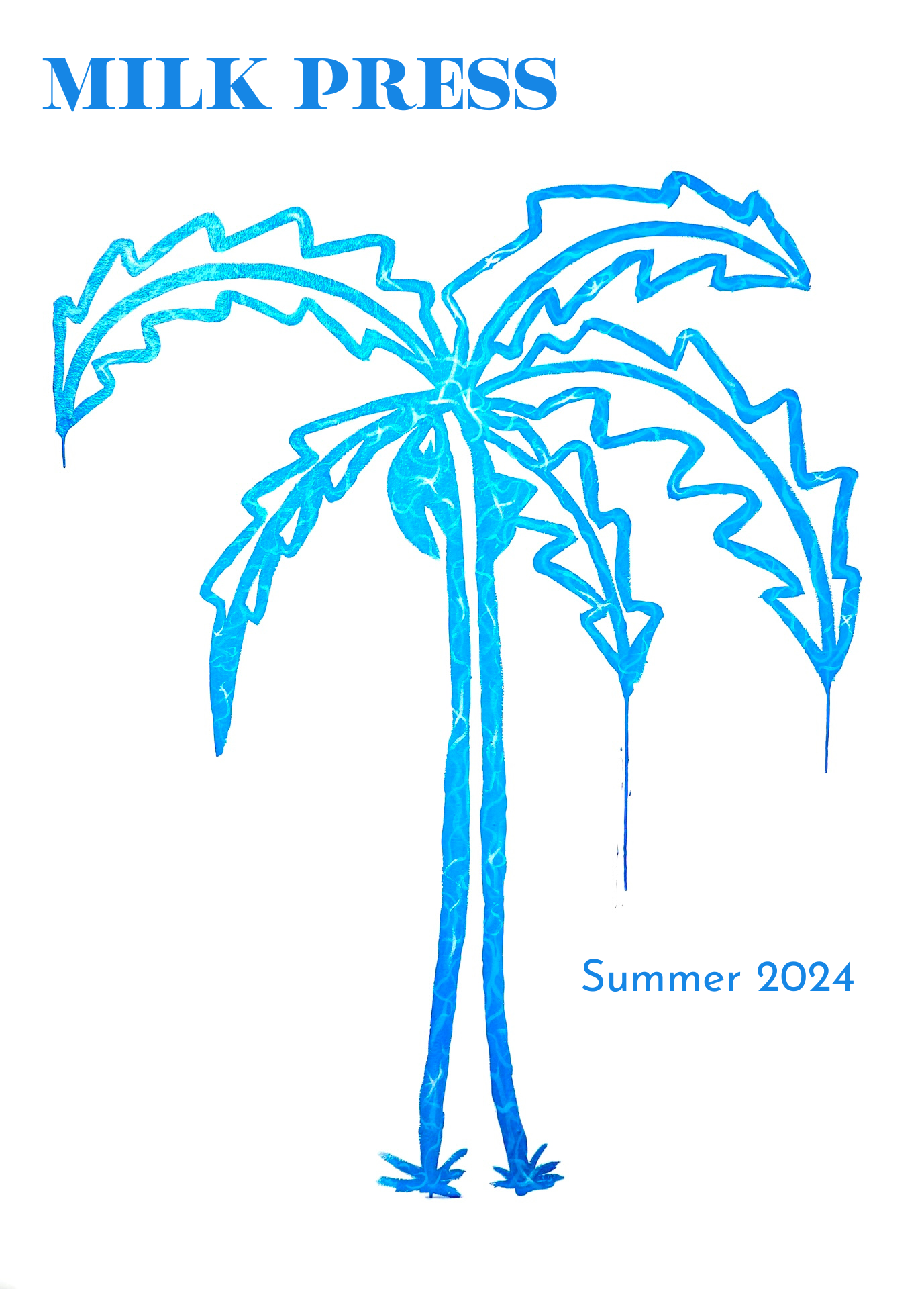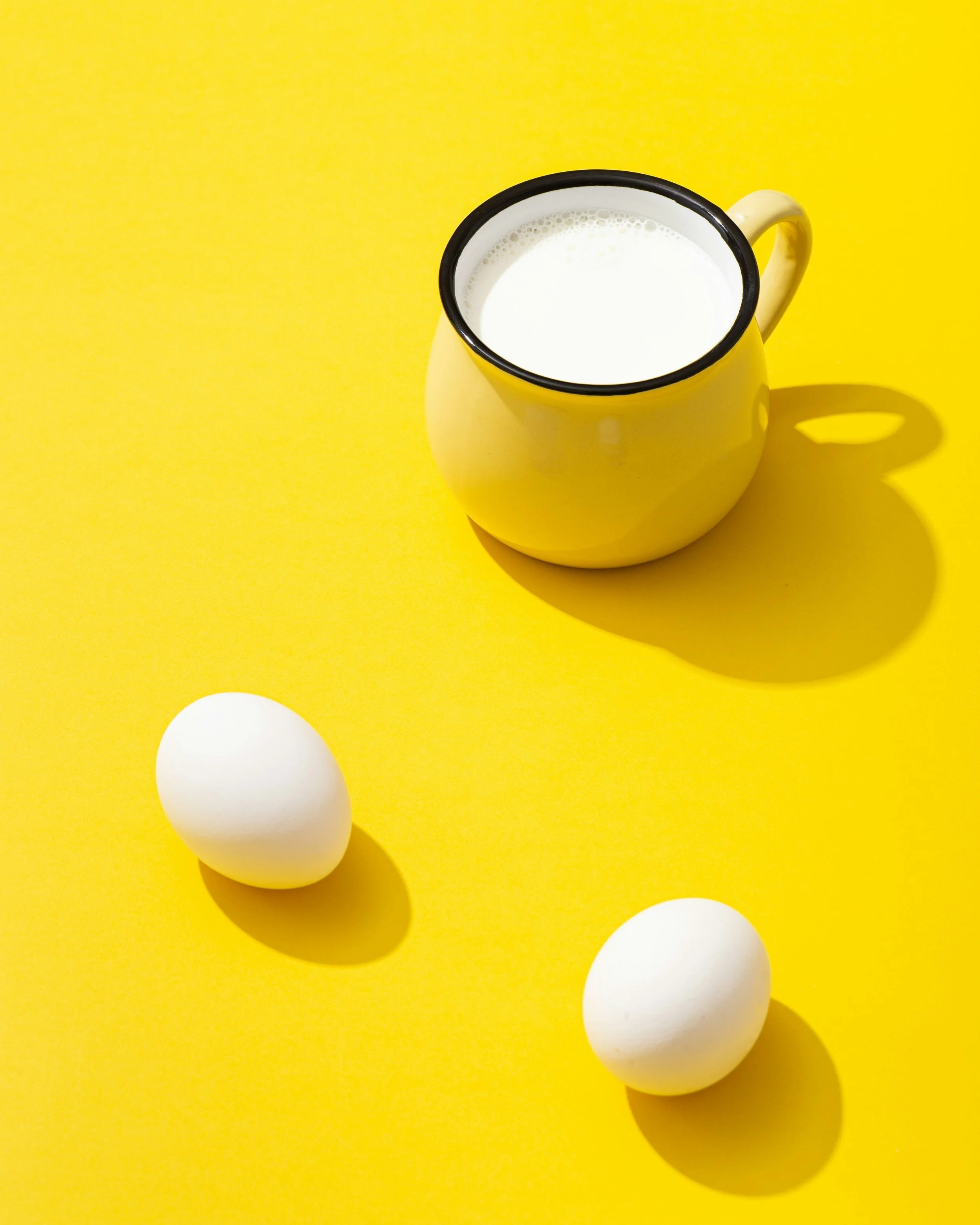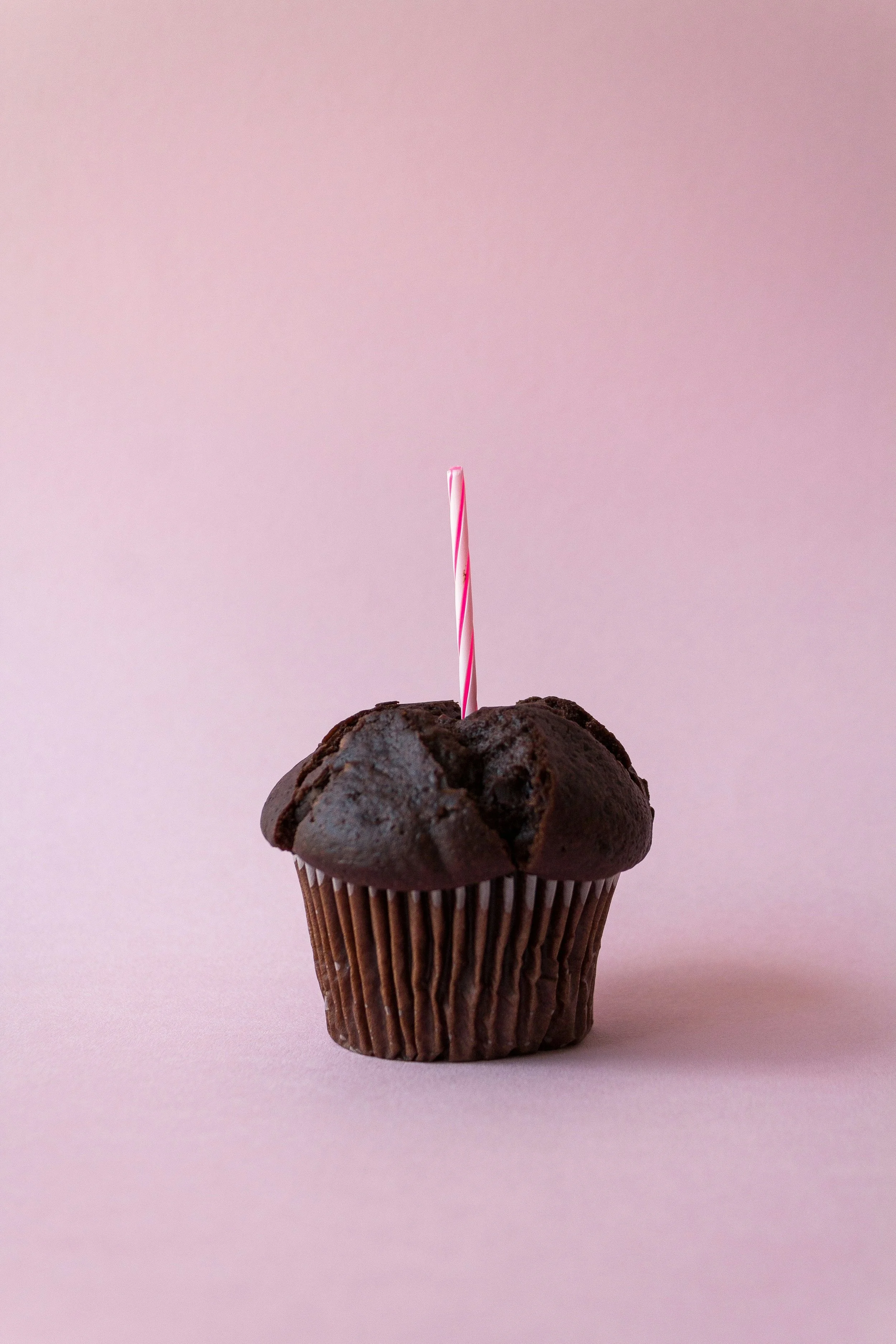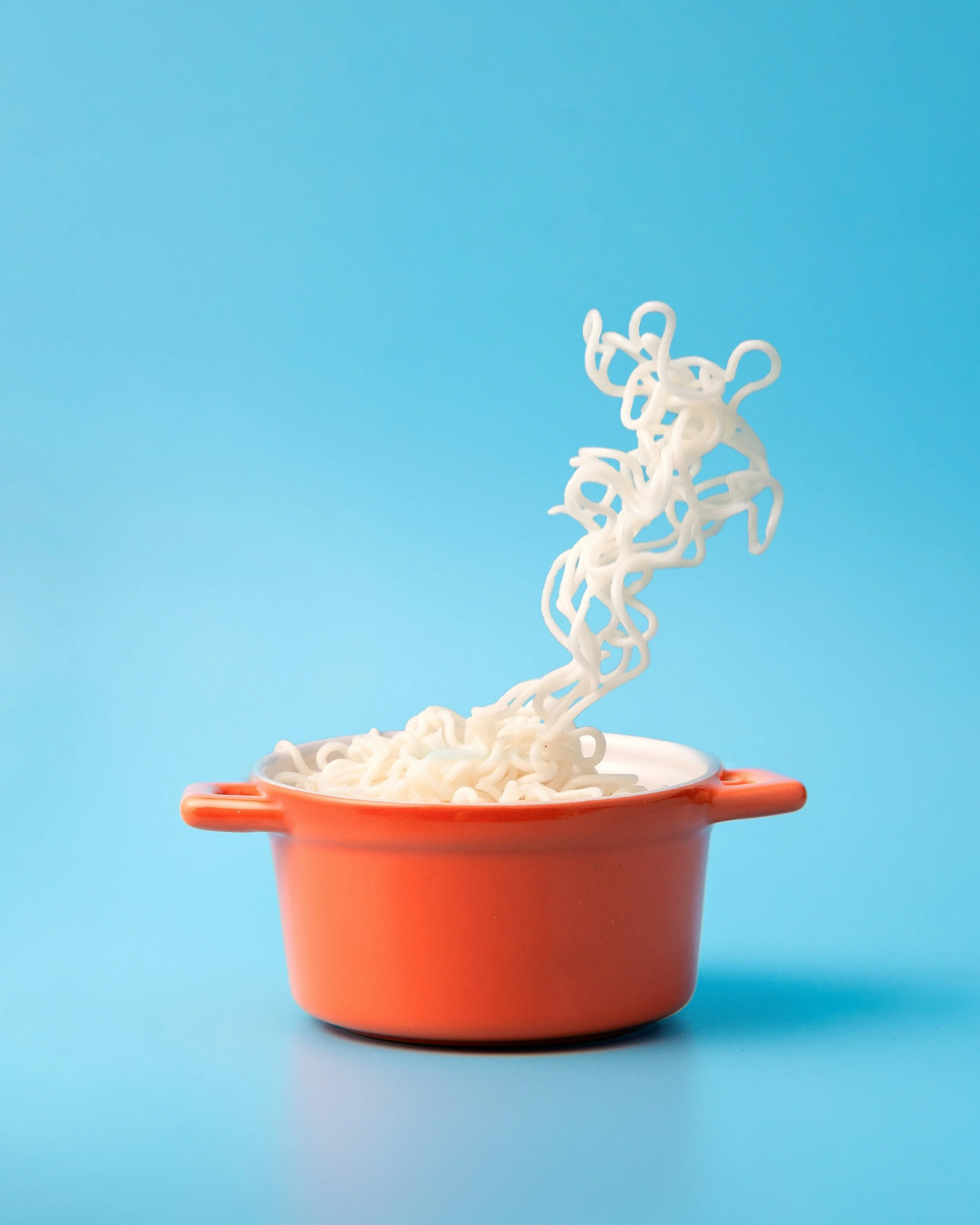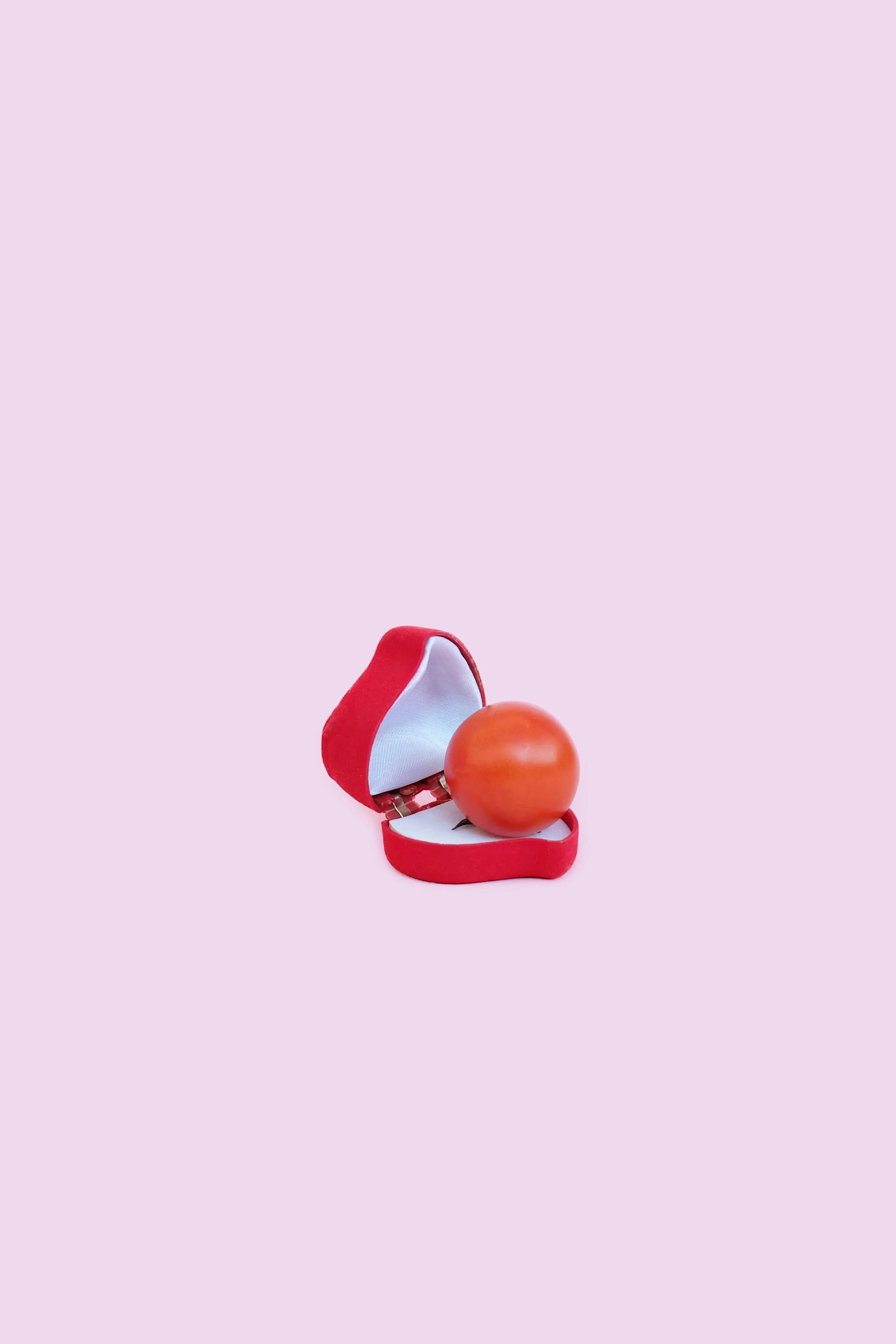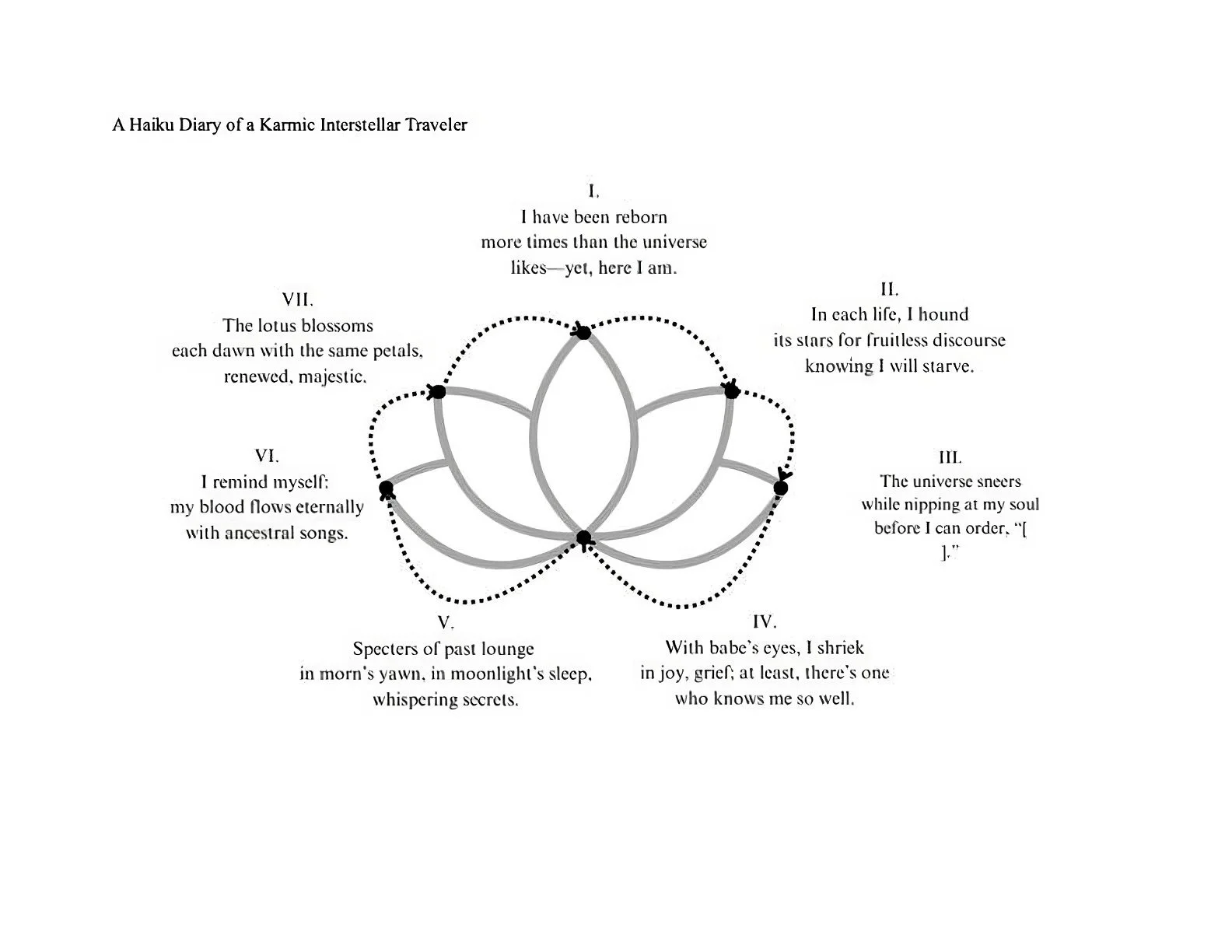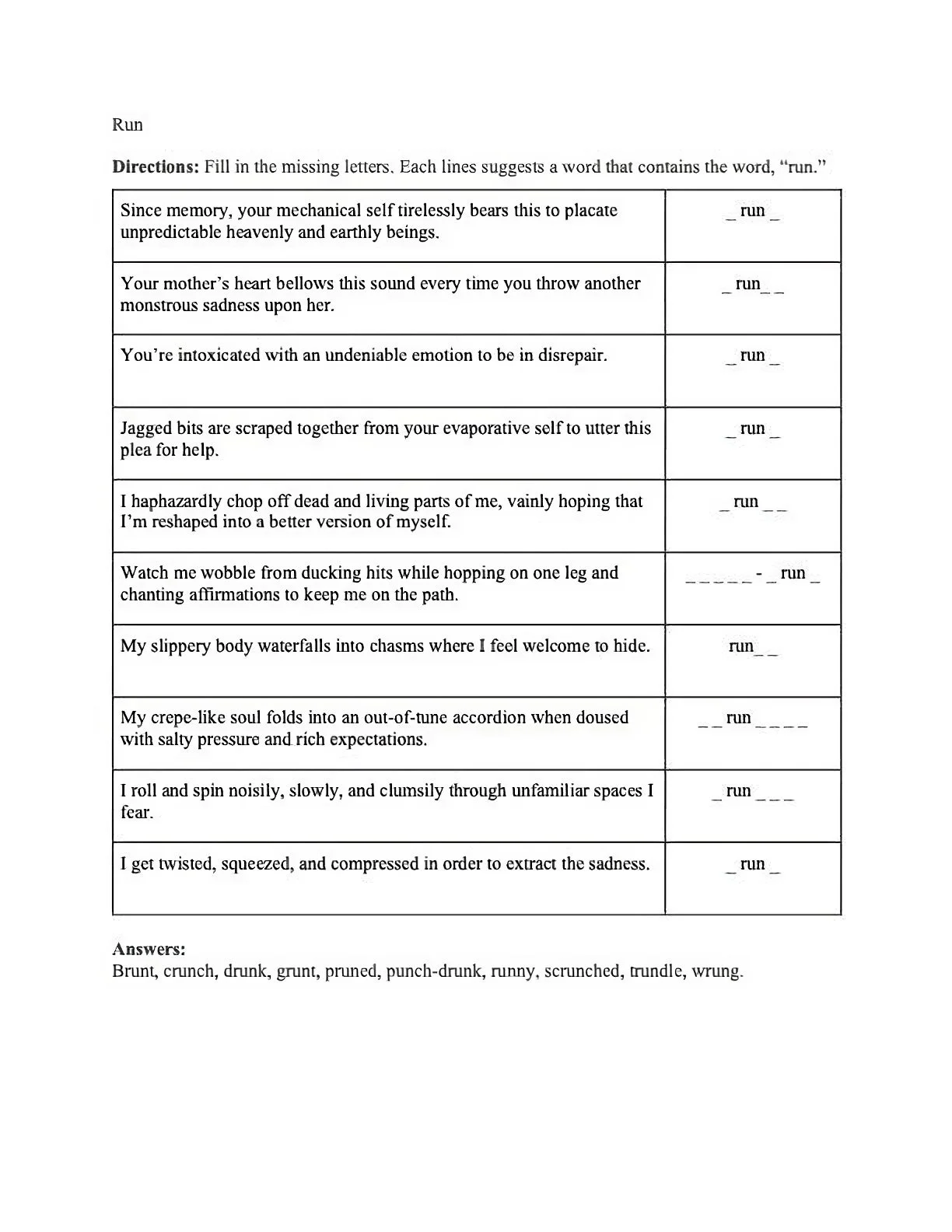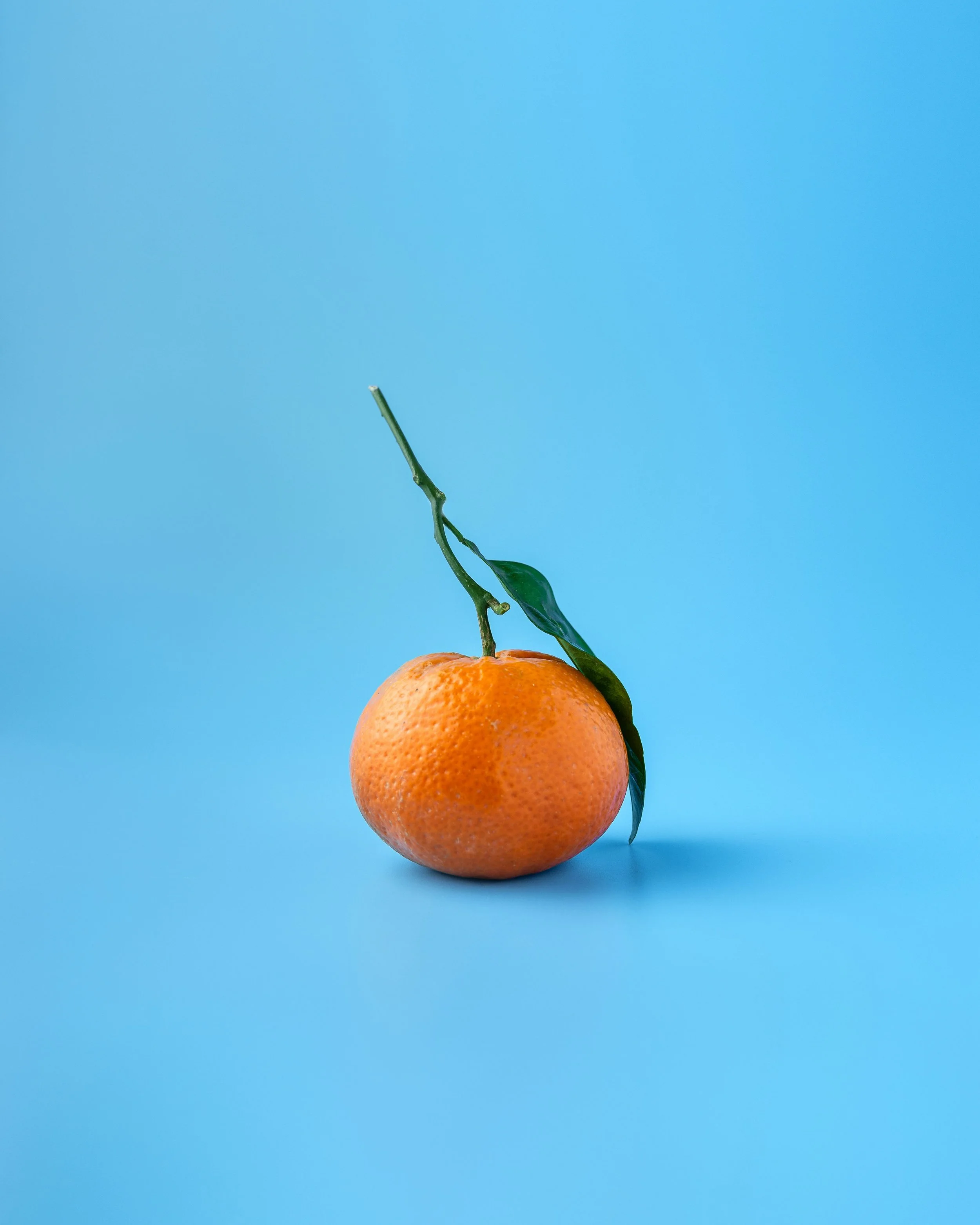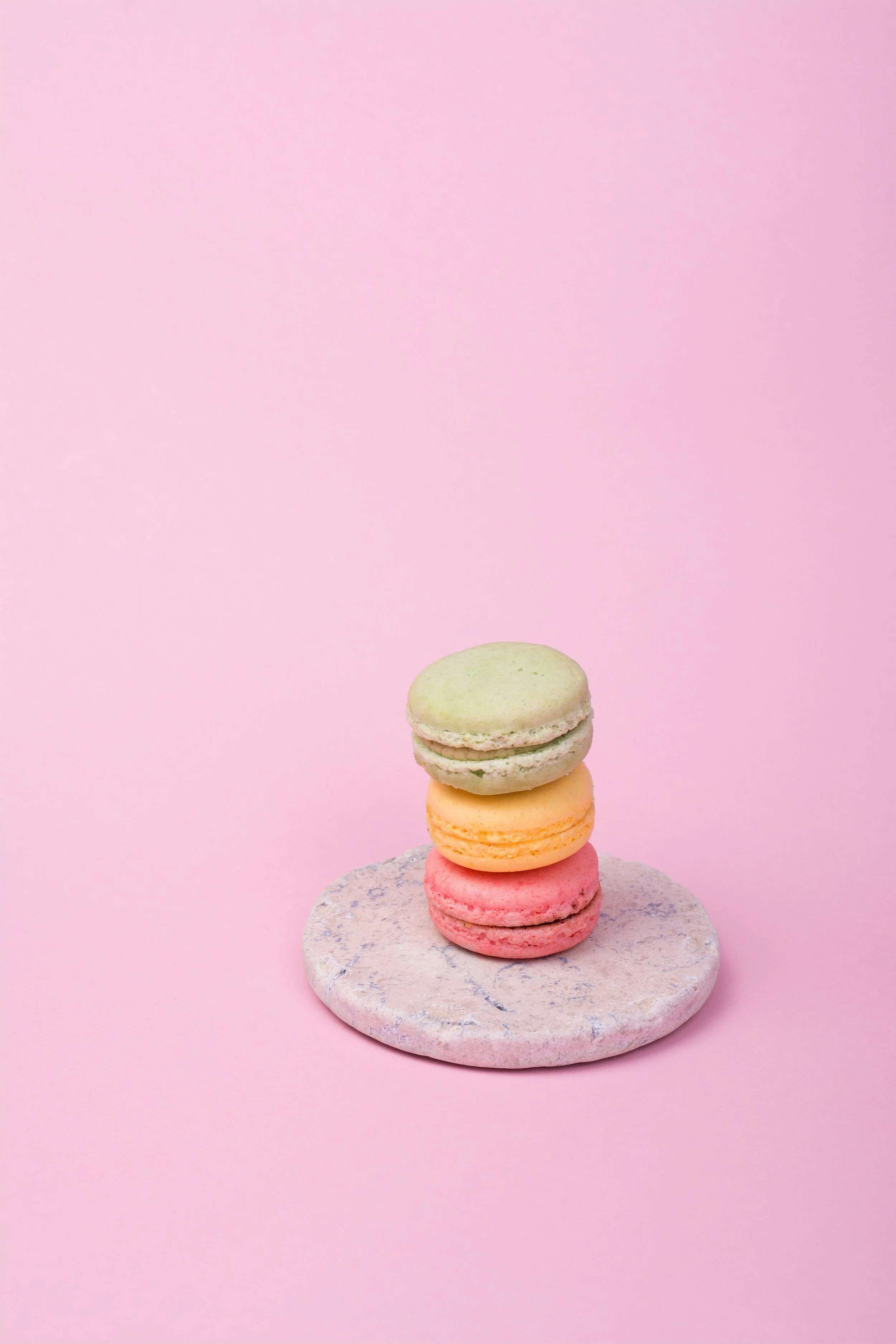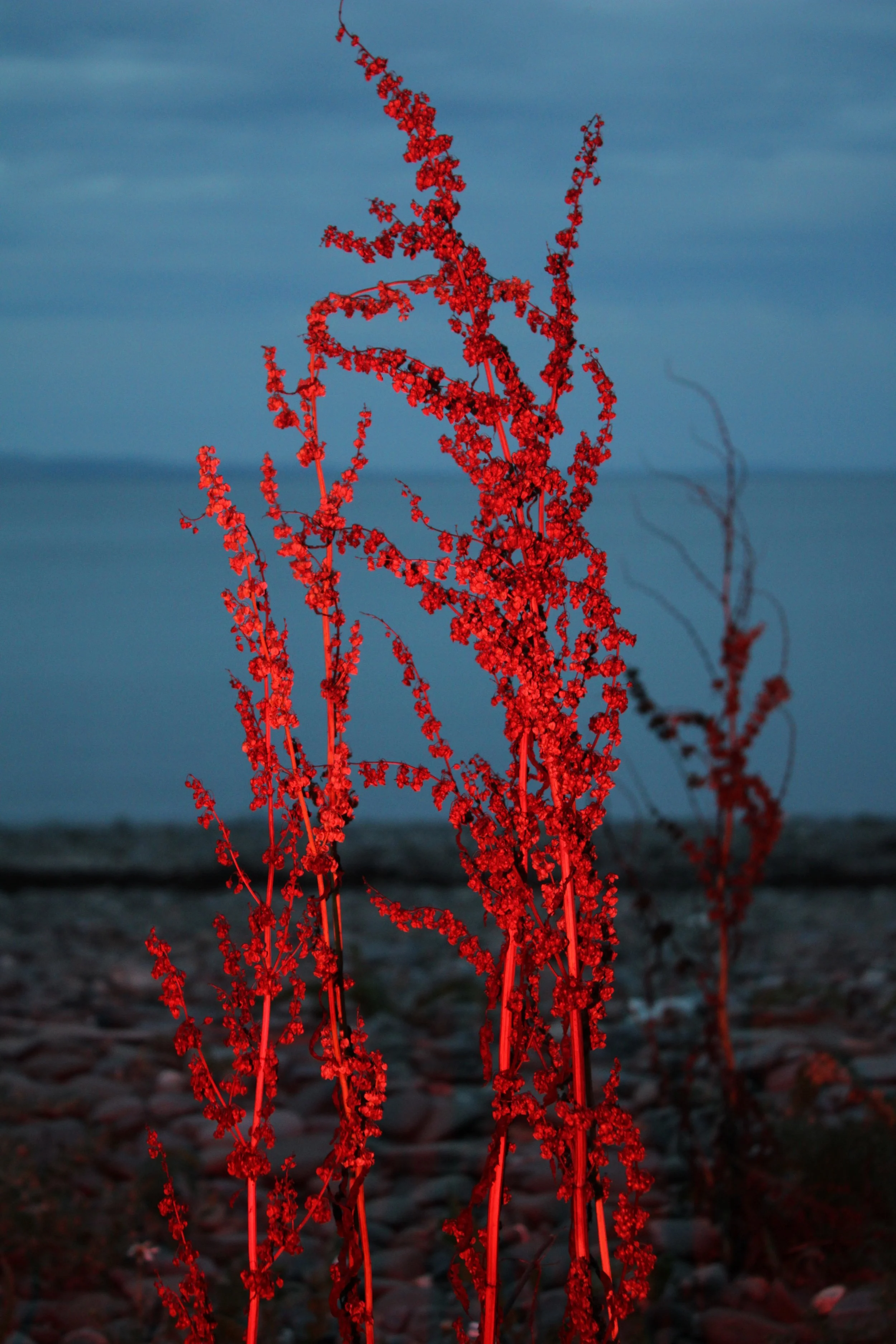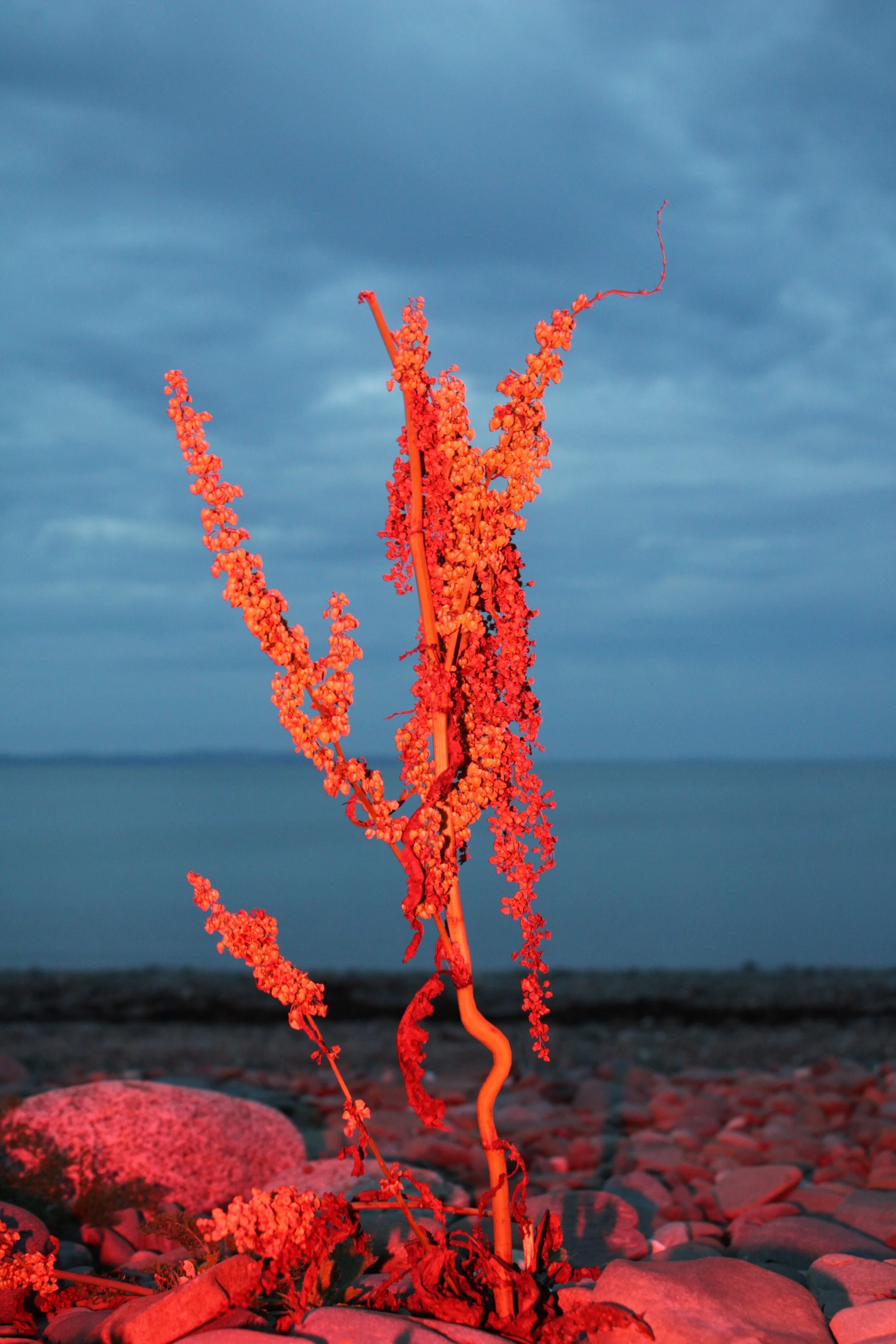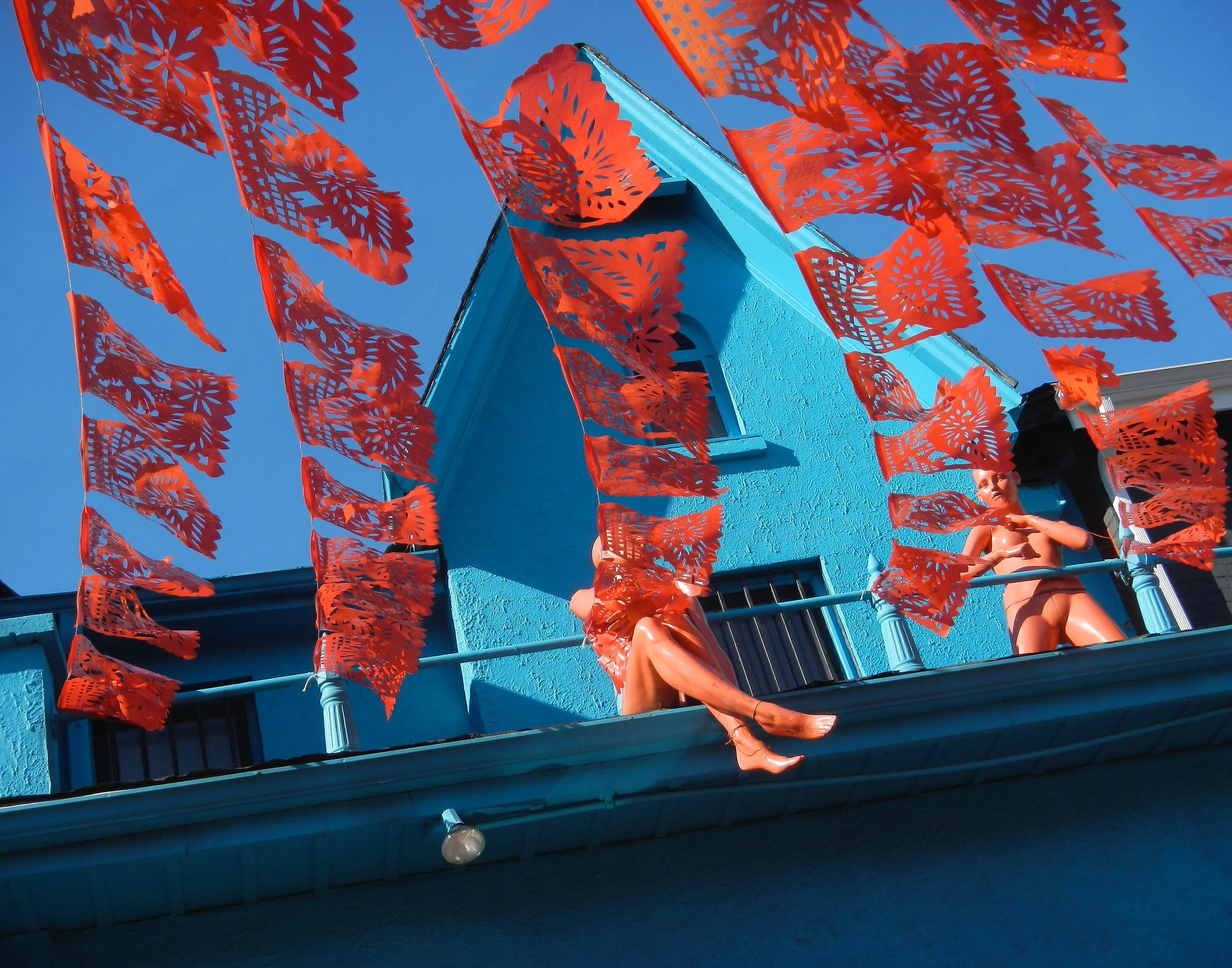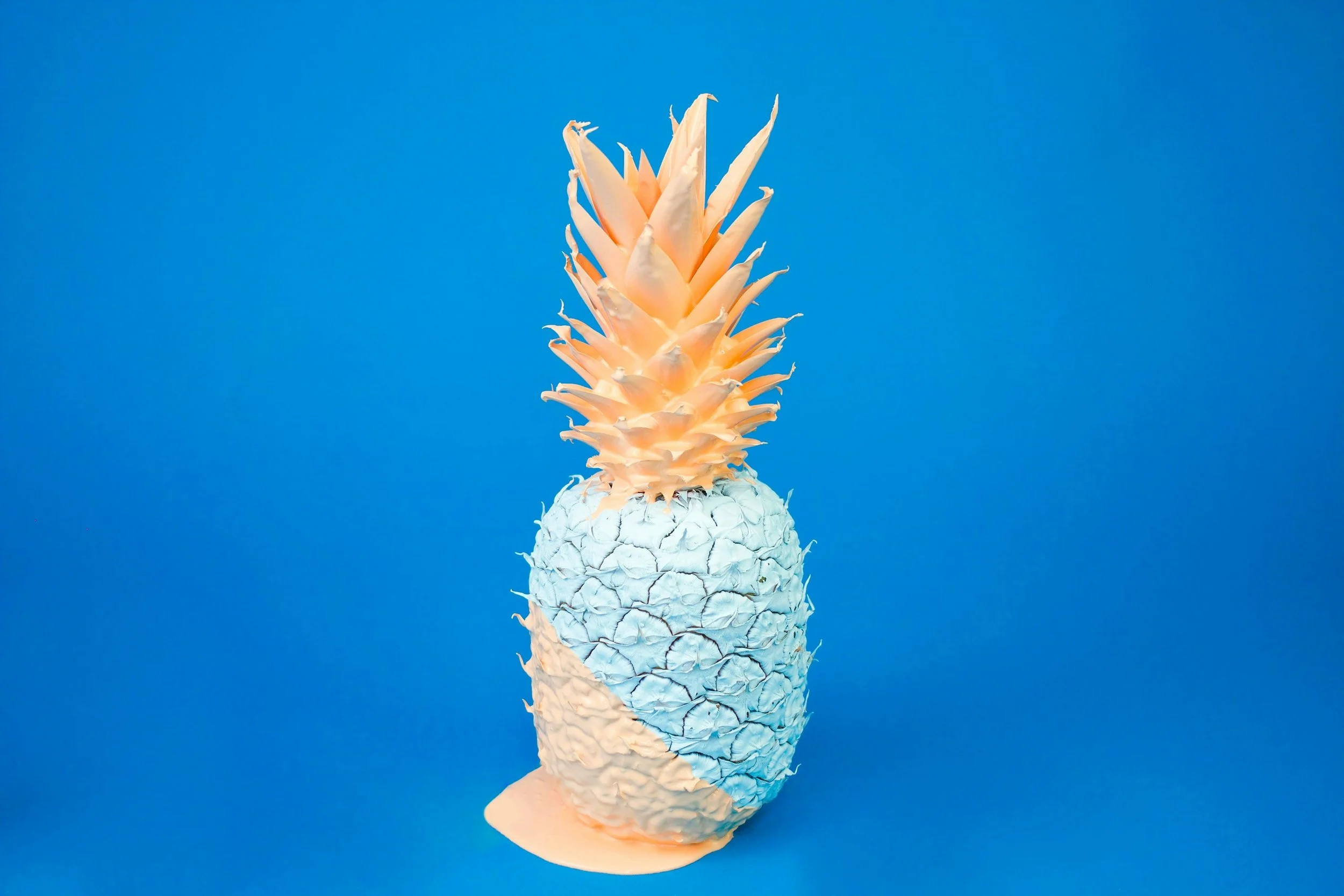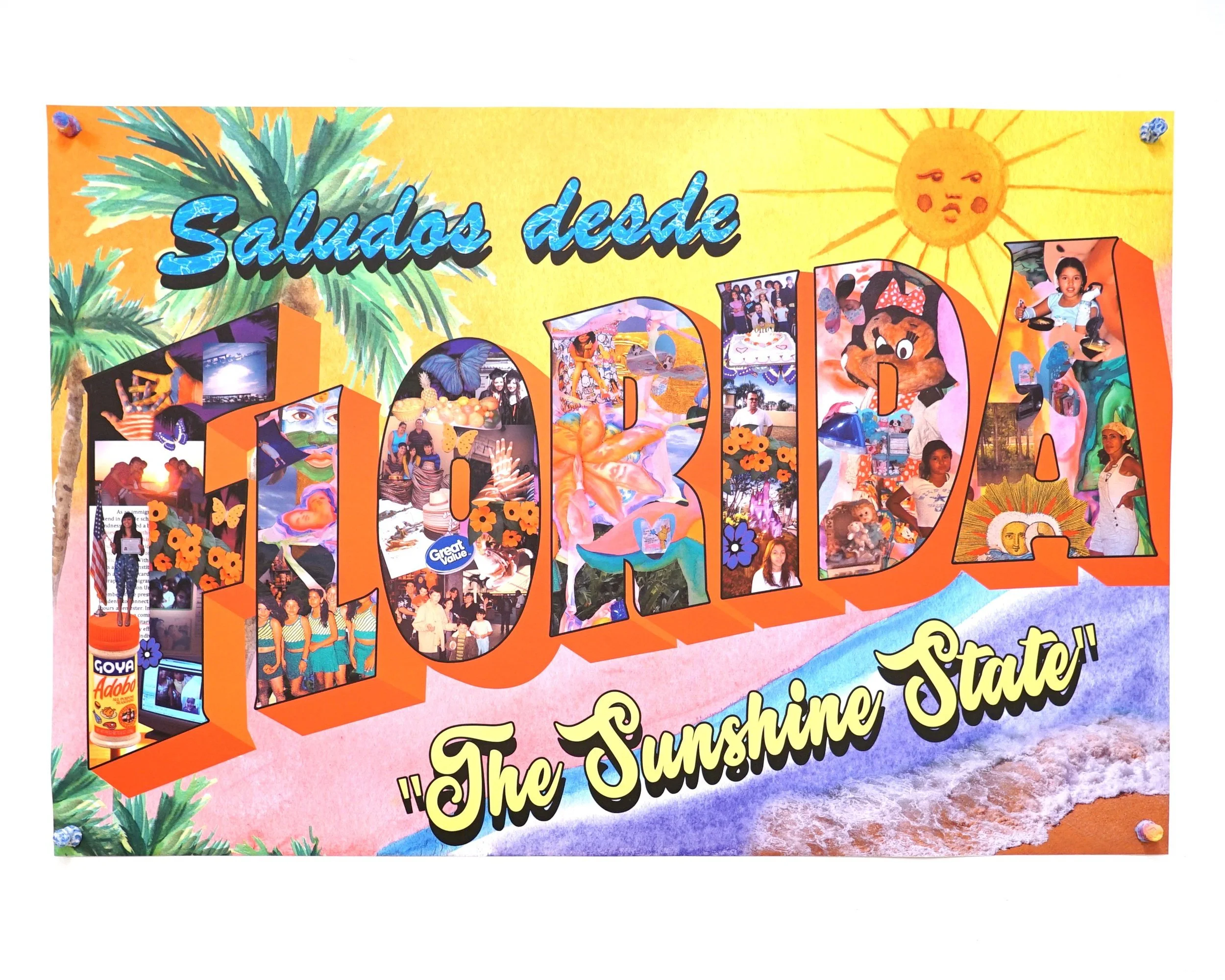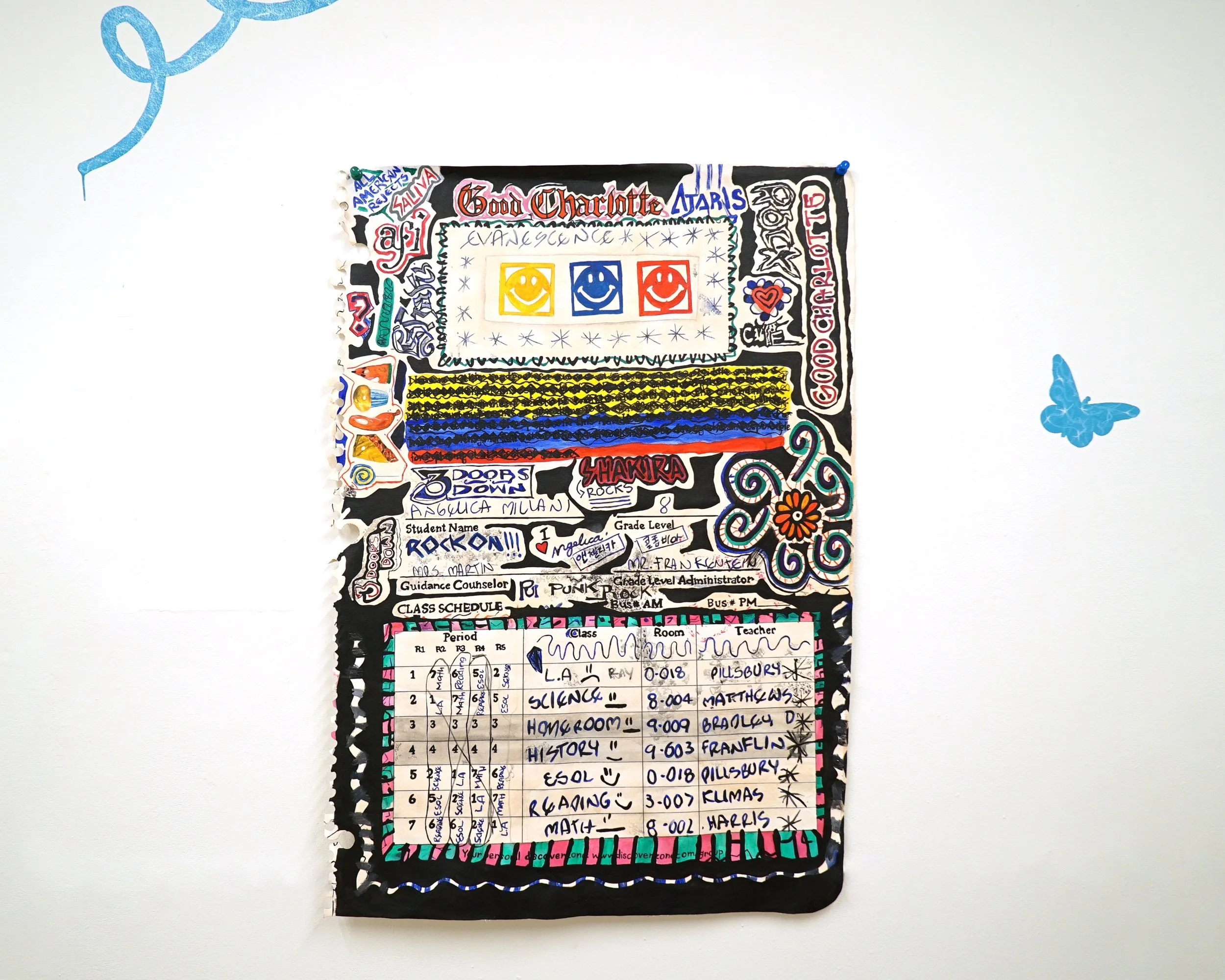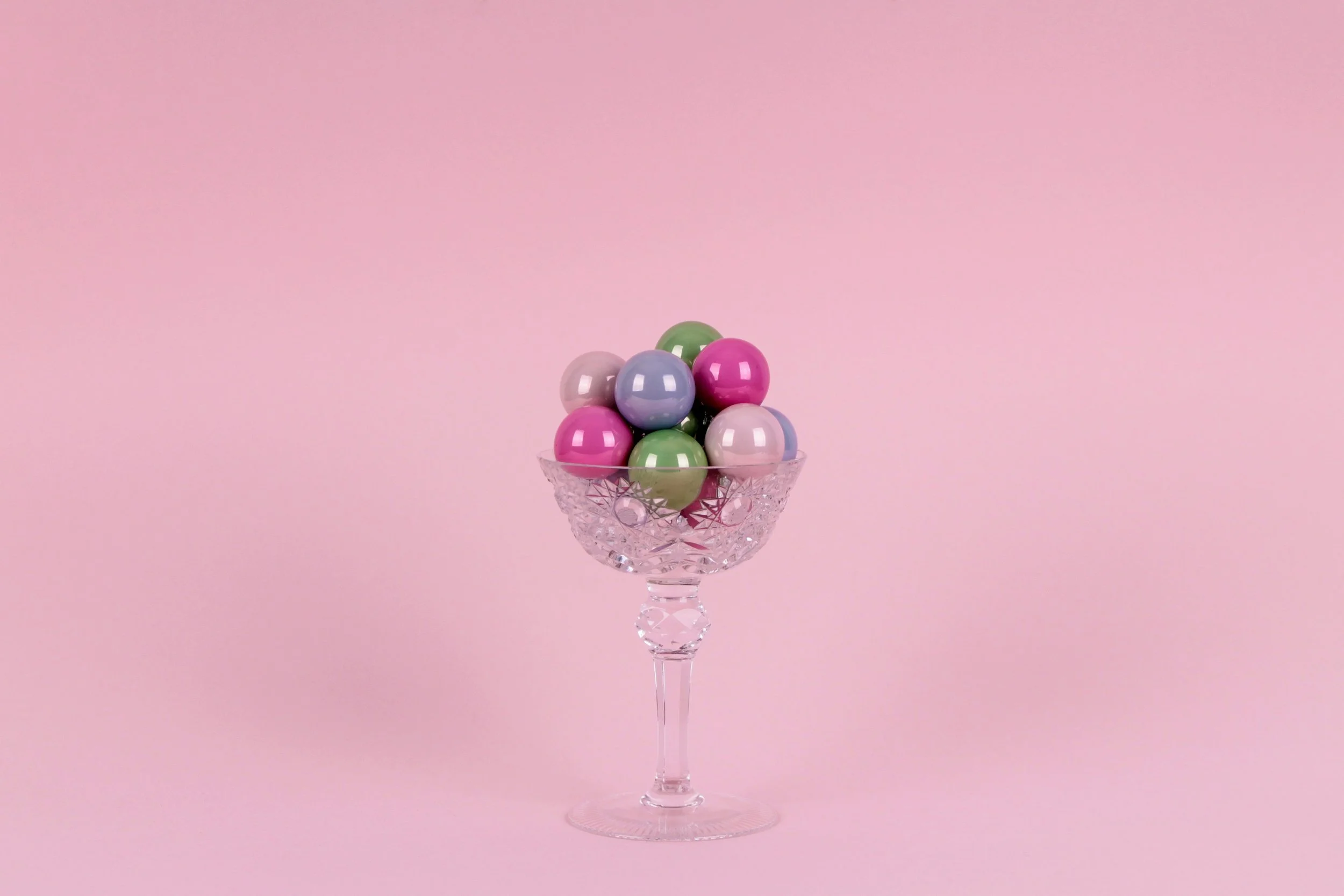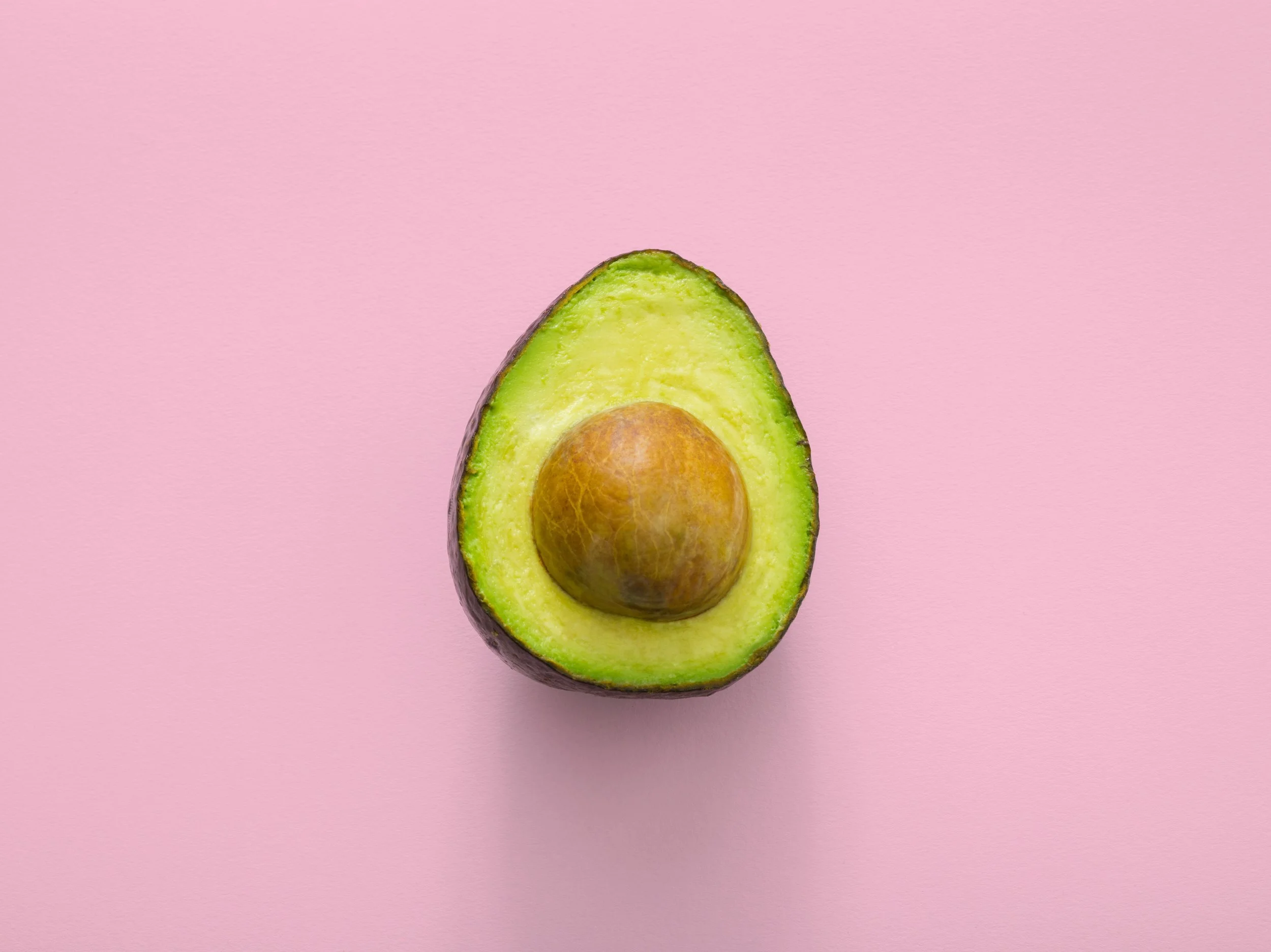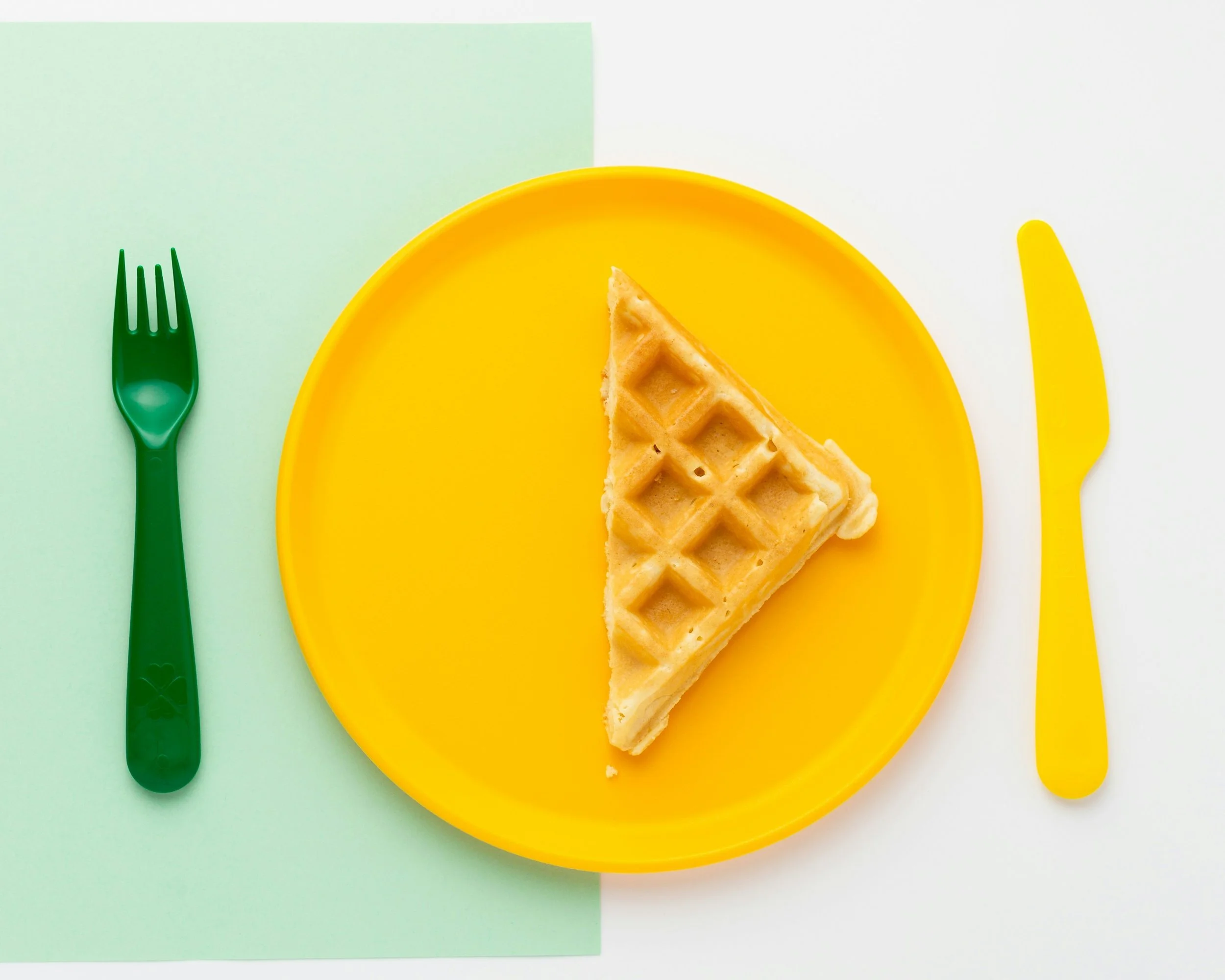
MILK PRESS
Spilt & Split-Open
Cover art by Angélica Maria Millán Lozano.
Masthead
Guest Editor-in-Chief: Faith-Marie McHenry
Editors-in-Chief: Leon Barros and Natalee Cruz
Editorial Directors: Stephanie Berger, Jackie Braje, and Tova Greene
Readers & Editors: F.M Papaz, Lisette Boer, and PSNY Interns
Editor’s Note
Dear Readers,
Despite the wave of neon green, club music, and “brat” hedonism that swept the summer of 2024, there is a poignancy at this time in history that one cannot deny. Grief for the lives lost in ongoing conflicts, an uncertainty that the rights and freedoms of all people will continue to exist, and the open wounds in our world that make it easy to feel helpless over what seems impossible to change.
Yet, there exists a paradox between the seeming stagnancy of our planet and how quickly tragedy comes and goes, our society ebbing and flowing at what feels like a more rapid pace than ever. Have we come to expect breaking news? Grown desensitized to death and violence as it finds a way to the screens we surround ourselves with on a nonstop basis?
Then, there is the art we make: those mirrors of words or paint or clay that reflect the profundity of the present we struggle to realize in the midst of it. A piece of something that strives to capture everything in a moment and throughout the years says: “I was here. I am still here.”
Our summer issue highlights those works of words and art that evoke this sense of everlastingness. In “Danez Smith’s ‘Don’t Call Us Dead’ Is My Favorite Book Of Poetry,” John White’s ode to Trayvon Martin, Emmett Till, Michael Brown, and Black men who we continue to grieve generationally captures these souls taken from the world too soon with “more light.” with “more life.” Reminding us that those we miss are more than gone. They live.
Marie Howe’s “What the Living Do,” tells us that this space of yearning between life and death is universal, and the pieces of art and poetry we have selected show a sliver of specificity within that universality. Lisa Delan’s “Dites-Moi” muses these lines: “I am afraid of what will escape / if I sing the final notes you sang / to me,” capturing the essence of grief's complexities.
“I am shocked every time / the world brings me to my knees.” The closing lines of Grace McGovern’s “Cicada Season” promise to strike a chord with anyone who has loved, lost, or longed to find a way of making the world a little better before leaving it. The collage of Courtney Seymour & Albert John Belmont ends on the opposing words that alternately make up all of human experience, “Finally,” and “again.” Robin Percyz puts forth a wake-up call to those who have tuned out the cries of injustice coming from all around us, those who “shake it off faster than excess salt.”
Thank you to Leon, Natalee, and Fi for their stellar support, our team of summer interns, and every writer and artist who shared their work with us. Each piece reminds us time and again that, by the baring of our souls through creation, changing the world is a thing we can all do.
Warmly,
Faith-Marie McHenry
Editorial Lead Intern
Poetry
Deborah Allbritain
-
Something I’ve meant to do now that I’m alone.
Once I grew a horse from oak trees,added the taste of escargot, shallot butter
and burgundy I fed him on the Rue de Rivolihoping my husband would put down his lug nuts
and tweeters, wonder why he hadn’t heardmy Appaloosa kicking the floorboards,
counting oats under our mahogany bed.It could be the cold moon tonight that
draws you outside in your robe and overcoat,mucking around for the tin Christmas tree bucket,
almost French. It is in this moon shaped bucketthat your mule deer will be grown, though
you have no idea how. Only thatit might be best to assemble him in the dark:
handfuls of nasturtium, twelve pounds endive,brown mohair, standing water from the bird bath.
You pour a dead champagne and think howchildish it is growing a mule deer just because
nothing feeds you, nestles its animal contentagainst your skin. Why should you care anyway,
waiting for its struggling limbs, blueberrylips coughing up night smoke. How will it recognize
the taste of your fingers, its own wickof a body covered in ferns, how will it know
you’re not going to hurt it. -
Last night I took a chainsaw to the plum tree,
whacked branch from branch until two stumpsstood vacant against the house. It was twilight,
the dog gnawing the plum wood like a homelesssquirrel, my body slick as raunchy perfume, blight
of crisp leaves. The thing is dead I told myselfeach homely twig refusing to explain, the fractured
kaput of old bone, but I heard the plums in theirlittle dreams, wearing sweaters in summer because
there was no hope. Don’t think of these thingsanymore I tell them, even though I am uncertain
what the end means, only that I need to work harderagainst memory, celebrate these haunted begonias,
starving limes, green ocean of lady fern still breathing.
-
Deborah Allbritain’s book “Osgood” was published by Brick Road Poetry Press in May 2024. Her work has appeared in The Baltimore Review, Barrow Steet, Beloit Poetry Journal, Ecotone, fugue, Salamander, Thrush, Plume and numerous other journals. Individual poems have been finalists in the Crab Creek Review Poetry Contest, the Wabash Poetry Prize, the Bellingham Prize for Poetry, the Florida Review Editors’ Award, and the Comstock Review Poetry Contest. She received the Patricia Dobler Poetry Prize in 2017. She has been nominated for both the Pushcart and Best of the Net awards. Author’s website: https://willaflora.com
-
Each time a star explodes
the galaxy changes shape,
gas shocking the edges
into misbehaving.
I think of girls
collapsing in on themselves,
bumping in the bathroom, bursting
in the light.
The way the earth spins
a little hollower, the way parents
look at driveways and think
I wonder when she’ll be home.
I’m not saying girls are stars or
people mold to the gaps left over or
the air around you is exploding
into oxygen every minute or
even that you should listen
to astronomers. I just know now
even the biggest stars die, and —
and — the smallest ones steal
the shape of space.
-
Zoe Berger is a queer, Filipino-Jewish writer based in Brooklyn. Her poems have been published or are upcoming in Antiphony Press, Thimble Literary Magazine, Wild Roof Journal, The Naïve Journal, and she recently completed a residency with Tupelo Press to refine her manuscript for a forthcoming book of poems. Her work explores cyclical patterns of nature and the limits of primal bodies. She can be found on Instagram @sadspot.
Zoe Berger
Amelia Blair-Smith
-
i wanted no washed grass but the
world’s largest sprinkler straddles
over acreage no fresh fruit on your
advice i bought canned pineappleto keep from starving TSA took it
from my bottle-green suitcase
so i took aurora borealis with
open eyes this time but they said
she was contraband they made
her remove the rings from every
starry finger and we are both free
as far as the fence but now i can’t
look up lest i see ceiling fan after
ceiling fan now i can’t look up or
else it’s always sunset on some
hillside where you stare at thecurling paint while i read and
reread one last page paragraph
in last light i’m forever the last
reader i last like canned fruit -
i think i'll kill the summer day by day
i'll drag my feet through milk-
drowned flowers and write
poetry with their damp
excess on the floor
twirling my toes on
kitchen tile swish (i will)
swish (not go) swish (away)i’m building an armory in the broom
closet i’m mixing propellants in the
pantry i’m going to cover my bed-
room walls with blue drawings
of every entryway exit and
window of god’s house
and when i leave this
time if i leave this
time i’m taking
back my key
-
Amelia Blair-Smith is an MA candidate at Columbia University. Her work has been published in various zines and journals, including KGB Bar Literary Magazine, Poetry is a Team Sport, and SplashLand Magazine. Amelia hosts her own poetry open mic, Freeform, at the Third Space nonprofit venue in East Williamsburg. Her debut chapbook, Food Pantry Millionaires, is out now with Bo Press.
-
Window
A woman hangs a damp towel on a hook. It’s the season when the sugar maple may be any maple. The cat, wrapped in a delicate handkerchief brought from Kyoto some odd weeks ago, is buried in its shade. The syncopated clouds move overhead. Smell of oranges. Girth of sunflower. Sanguine petal pushers.
Or rather, I was careless. A bottlecap in the pocket of my cut-offs. I called the sun this little thing. I noted its rotation around the earth. Pink, I said. Unravel.
Perhaps we need the mirage as surely as the mirage needs us. If isinglass is fish bladder; if eyedrops bourbon; if amorphous mesh; if lonely; if s p r a w l. If, then. Yes. If. Then. And on we go.Door
The itinerary is attached to the refrigerator. A magnet in the shape of a pushpin. The woman strikes the sides of the coffee cup with a spoon as she stirs in honey brought from Boston. The honey was made by bees from another woman’s husband.
I took no thing personal that spring. I was hardly a person, after all. A penchant for bread and gold. I tried three-card poker. I trusted no one.
When mingled with a lubricant, steam becomes water. We measure our dreams with yardsticks and dollies. We are asked no questions; we tell no lies.Vanilla
The bottle is dark and quite small and somewhere behind the old bay, the dried basil, the dish towel with the lemons brought from Mexico so long ago that the bringer has been forgotten. Ricochet of light on the countertop. Imitation.
Or, I was hungry. The scale. All morning, I made promises to myself that I would let myself grow hungrier still. The gnawing. The dog with her bone at my feet.
We mistake the ephemeral for the everlasting. We earn our rank then lose it. Toggle and ramble. Nothing held can be had.Pan
A pan soaks in the sink. Squirt of blue soap. Unused blue sponge. Sky likely blue beyond but so many walls. Perpendicular, plastered. Rectangles cut into the walls and glass placed into the rectangles. But curtains.
I think I’d thought that lying a paperback on my thighs and taking a photograph might translate to a hotel on the banks of a river in a town I could not pronounce.
Perhaps desire is illusory. We want and want until we no longer want nor are no longer wanted. Certainly it is arbitrary. The swinging cable of a crane. A little before noon.Pistol
A pearl-handled pistol in a grandmother’s glovebox. A handbag lined with fabric on which the shape of roses have been pressed by a machine. Long ago. So had. Heat. Heather in a field. Lavender.
I’ve lived long enough that my virginity has become a small percentage of my existence. A dust of opium on the eyelids. Cherry lipsmacker. Some July.
So often we’re disarmed. No. Not often enough are we disarmed. Too few pivots in the meadow.
-
Nicole Callihan’s most recent book, chigger ridge, was selected by Sandra Lim to receive The Tenth Gate Prize (The Word Works 2024). Other books include This Strange Garment (Terrapin 2023) and the 2019 novella, The Couples. Her work has appeared in The Kenyon Review, Tin House, Conduit, The American Poetry Review, and as a Poem-a-Day selection from the Academy of American Poets. Winner of an Alma Award, her next book, SLIP, will be published by Saturnalia in 2025. Find out more at www.nicolecallihan.com.
Nicole Callihan
Alyx Chandler
-
here’s a tongue I never really let out
except for icy showers after bad sunburns
skin blistered lip-pink as my mom rubs
aloe vera down my spine my body a flute
made of bones soft stomach melodies
that wrap around me tight as a string bikini
stinging with saltwater every stretch mark
crying for the arms of a faded beach towel
shame a knot caught in my hairbrush
pain a pleasure as I cool myself
skin dripping like raspberry gelato
I lick the spoon until it sparkles
-
Alyx Chandler (she/her) is a writer from the South who received her MFA in poetry at the University of Montana, where she was a Richard Hugo Fellow and taught composition and poetry. Her poetry can be found in the Southern Poetry Anthology, Greensboro Review, SWWIM, Penn Review, Epoch Magazine, and elsewhere at alyxchandler.com.
-
I sing softly as I caress your hair,
which has grown improbably
long and white—
talisman strands of silk. Later
I will find them on your
sweaters as I fold them into
bags. Under your sink as I box
your toiletries. On my nightclothes.
My slippers.Your lips are so dry.
I fill the morphine dropper
again and coax out little pearls of
water. The hospice nurses
are at a scarce pandemic distance—
but I am here, fumbling with
this smattering of palliative
gems they left before receding
into frozen Facetimes. You
hold my eyes as you bite down
on the dropper. It takes me days
to realize your gaze was a caress.
You carry me cupped against you.
It would have been the apartment
in East Brunswick I know only
from faded photos, before we
moved to Highland Park. The
vibration of your voice stills me
against your chest as you pace the
length of the house, humming the
lullaby from South Pacific, soft
against my fontanelle.Your fulgent eyes—sun
through a stained glass saint—
are fixed. I trace the path with
my own eyes and see only
the half-cracked door. I think that
mom must be ready for you now.
I cannot see her, but your eyes rest
there. Where I think she is.
I am afraid of what will escape
if I sing the final notes you sang
to me, trilling on vous m’aimez—
I love you. There is only the bus
down the street, the drip
in the bathroom sink, Rosie's
paw pads tapping the wood floor.
I cannot exhale.
-
Lisa Delan’s poetry has been featured in a broad range of literary publications, and she has received a Pushcart Prize nomination. Her poems have been set to music by several prominent composers (with premieres in 2022 and 2024), and she is currently collaborating on a new choral work as well as a song cycle. When she is not writing, you can find the soprano, and international performer who records for the Pentatone label, singing songs on texts by some of her favorite poets.
Lisa Delan
Jaqi Holland
-
By all means, bring up my mother
Fail to take out the trash of our lives
Tell me how you’d like me to [eat / sleep / speak / breathe]
Say you wish I looked more like [celebrity / celebrity / celebrity]
and would be more [adjective / superlative adjective / unattainable adjective]
Whisper [vulgarity / her name / nothing] in my ear at night
Don’t answer when I [call / text / email]
Say you’re not big on [phone calls / talking / communication]
Tell me you’re [busy / hungry / tired]
Leave [dinner / gifts / doctor’s appointments] to me
Fawn over [that actress / our neighbor / your office wife]
Tell the [dog / your mother / the kids] you love them but not me
Ask me, Do you really want [seconds / a career / children]
Walk ahead of me in the [city / crowd / woods]
There it is: a [flame / fire / conflagration] -
The town towed the raft away today,
swimmers left bereft
as if the sun, too, were on the hitch.
On the faded fence
keys freed from pockets
sunbathe, swimsuits drip dry,
towels drape like napping flags—
all the bodies you love at rest
kissed clean by saltwater memories,
everything damp in a way
you didn’t know joy could be,
crashing your coast in gentle waves,
shorebirds singing about it to the tune
of I've been trying to tell you.
-
Jaqi Holland is a poet, essayist, and copyeditor living north of Boston who holds an MA in Writing & Publishing from Emerson College. Her work has appeared in Humana Obscura, The Ekphrastic Review, The Christian Science Monitor, Plant People: an Anthology of Environmental Artists, and Flora/Fauna: a Collection of Nature Poetry & Photography. You can find more of her work at JaqiHolland.com
-
Off-white street milk
pools next to steaming trash
and collabs with fruity pebble
urine smell. Certainly, somewhere,
there are feces. The mess
people make of themselves,
the ooze we leave
in all this wanting.
I won’t tell the other poets
our secret, dear city,
that there is no greater
meaning to your splendid filth,
that your constellation of garbage
is neither metaphor nor badge.
We are obsessive, gross animals.
Oh metal sister,
oh steeled flaw,
you are our gilded proof.
And now, look!
There is one friend
on either arm, former
roommates and current confidants
hold plastic cases of dunkable cookies.
The pizza slice drips
peppered gold past my
sun brushed mouth. I’m here
in you, a city so nice
they named it twice
and claimed it “empire.”
The only city with a
capital “T” in its “The”
because you are,
cliche as it may be to say,
Thee City. Horrible, stinky,
shit stain you are.
I sacrifice to you
my heart and all
my sneakers. May I always
feed at your table
and sleep by your
sleepless clock. You
remind me who I am
with your glass buildings
lost in a violet sky. Two
boys, perhaps not for long,
sit at the bar. They
share mozzarella sticks,
they talk about fear.
They call a cab and ride that
yellow chariot into a chorus of
a thousand, lonely nights. -
A storefront across the
street is closing down,
some inconsequential
British retailer.
They left a lot of trash on
the cobblestone:
a shipping box,
an empty Softsoap®
refill carton, neon
slips of paper, etcetera.
The sun starts setting on the trash, and I wonder:
if you sliced New York open like a pomegranate,
would you see all the clustered discards,
bags, bottles, and broken
parts of people? Their bones
ground up and spread into fragments,
their dreams rusted like gears,
their hair like malnourished violin strings.
Here lies the species where they stood:
their shambling arms and silly wishes
and footprints on the moon.
They woke to reach and slept to wake again.
They marked their days with wanting,
and oh, poor things,
look where it got them.
-
Philip Kenner is a poet and playwright from New Rochelle, NY. His poems and plays are published or forthcoming in Colectivo Tabú, poetry.onl, Cordite Poetry Review, and Kitchen Table Quarterly, among others. He is a founding member of COPY Magazine, and he has an MFA from Northwestern University. philkenner.com
Philip Kenner
Zoe Gold + Alexander Max Fine
-
for justy on june 13, 2024
It’s okay to accept going bald
Hacking up extraterrestrial pollen
You hate how much i love smoking
The miracle is interior and
The world changes accordingly
I’m mainly just an unpleasant person
With a monthly stipend
Compulsive orality infinite skin folds
A lot of good if stopped depending on
Vagaries of individual attitude and persuasion
Space fucks up the decorator-architects
I’d rather you steal than ask
I’d rather you cheat and still love me
for jonathan on june 15, 2023did you know lizards can do immaculate conception?
meanwhile I wake up in the morning feeling bad
shirt sticks to armpits cuz wore it yesterday
everyone needs Spinozist Wallace and Grommet pants machine
lizard parthenogenesis is nice actually because no males
I’m squatting in the negative space created by Wallace’s teeth marks in the moon cheese
still jealous of Descartes-level ego
while I self-fertilize, roast pineal glands, sell off ballooning value of our IN-vironments,
jinx remaining mojo with goth font and dresses with consciousness,
when I get into my emails I’m easier to deal with
today’s nothing
the late 90s were the heyday of pierced genitaliafor morgan on september 9, 2022
I don’t know how I feel about this shirt
that which is called safety can also be called servitude
how honest should we be when we say which bed we want
even if we theoretically believe in revenge now not capable bc tired
crush oriented ontology
don’t answer yr texts keep having vibes
fuck poems i just want to get back to krumping
for yagiz on July 1, 2024the rat in my head goes way back with the angel of history
morally bereft but shamanistically upstanding
like Marcuse said:
“haven’t been up to much lately
state-sponsored personality splinter,
Aaliyah forever”
post-solstice brat hagiography finally waning
100 Lasik eye surgeons inside the Dakota
the world trade center should have been a laundromat
I joined the band even though no pants
Let’s take this show on the road
b/c i subletted my life
I’m big and I’m readyfor sean bonney on august 6, 2022
exile from the self a psychogeographic experience
listening to the dead again
on a sweat-ribbed couch in at least three haircuts
just because we’re dead (they say)
doesn’t mean we are exempt from class struggle
catch-phrases used to smooth mercuric love into information
in the field of delicious craters
we are fed to institutions
there was a sideshow in bay ridge today
my mom taught me how to cheat on my taxes
israelis killed 43 probably more in gaza
palestinians mass amputated Tamworth weapons factor
milk’s symbolic value geopolitical consternation
burn the floating empathy dock to stop profit’s afterlives
Fanon says in the inverted nonbeing corners of the city
you can still hear the skeletons scream
as they tell each other about their bad daysfor rachel pearl stuart on february 24, 2022
the trick is to have 2-3 bodies
so they’ll really bring home the cash
and you can slime into the gutter
wearing hotel sex, tin foil hat, futureless buildings
just let me be in the snot village (peripatetic school)
I milked the big park buildings for 20 vials of jonathan lethem’s blood
history vertigo won’t stop licking my table, jonathan
modernity’s obsession with salvation has really wreaked havoc on the public bath
my bed arranged for paying customers
books on the bedside table are moist
we learned how to cry again when we finally stopped reading
-
Zoe Gold and Alexander Max Fine have been writing together since 2021. They spend their time in public libraries, air-conditioned house-sits, and sticky park benches sifting through the zeitgeist noise of a 5-mile radius around Eastern Parkway. They don’t get out much but where is there to go? Their previous works have appeared in VICE, The Radical History Review, cultural geographies, Society and Space, Transgender Studies Quarterly, Monthly Review, Volume 1 Brooklyn, Fanzine, PANK, and in Anna Tsing’s Feral Atlas.
-
My hair formed a knot
that August, a hardened husk
at the nape of my neck. My mother
had to hack and cut at its center
in the outdoor shower.
As I cried, I wondered, how
did it form? Each day, another strand
must’ve wound around itself. I never know
what creature I'm feeding
until its maw is already agape.
Something like sensing
the coming rain in your bones.
I lack that gene. I am shocked every time
the world brings me to my knees.
-
Grace McGovern is a writer and editor living in Chicago with her wife, dog, and cat. Grace's work has appeared in Dunes Review, Funicular Magazine, Open Minds Quarterly, and others.
Grace McGovern
Robin Percyz
-
The morning news is a funeral,
daily dose of death to eat
side of bacon. Wash it down withblood. That mercurial aftertaste lays dead
on the tongue, a belch of
how can this be happening over there?Yet we shake it off faster than excess salt,
we lick our plates,
we carry on.We are a country of stairs
each step forgetting the one below
so long as we move
up
up
upI get off the train at Penn Station and climb
concrete flights of apathy,
greeted by a corpse coma-tose at the tip top.
He is horizontal as a coffin
pants dangling from hook hips.
The wild stampede marches over
him, like an ant on the curb
chasing the dangling meat,
to tear into
prime rib and forget
it once had a mother.This city stores terror
up the arteries of its avenues.
These people have climbedthe tallest towers
and watched them crumble
to dust, whispering feathersof a fallen bird.
They’ve cried never forget
as they forget their way
up
up
up
-
Robin Percyz (she/her) is a queer writer from New York. As a member of The Society for Menstrual Cycle Research, she presented her piece, “Boxing and Bleeding” at their Conference in 2011 with Gloria Steinem in attendance. She has been published on literary journals/magazines and in print on Writerly Magazine (Paperbacks & Co), Same Faces Collective, Tulip Tree Pub, Ink & Marrow Lit, En*gendered Lit Mag, and Tension Literary. Robin was a competitive amateur boxer for four years and now strives to help others feel visible through her work. Find her on Instagram @robinpercyz
-
Look beyond as far as you can see—
the wars have ended. No more
blood spatter. A large man plays piano
in the street, with whatever's left
of his inside that listens to river's hymn—
sweeter than ever before. The fervor's gone.
And lightning's a mere sheet of heat.
One thousand rafts and rowboats have come to shore.
Five hundred horses nicker
in sun drenched fields near shredded fences.
Women rock and sing themselves to sleep.
But the children
have no hands or fingers.
The children have no mouths or teeth. -
Cento After Arecelis Girmay
and I wish I could remember what we did with our faces.
The weather of the house, dressed in sparrows
and daylight. Sunlight falling over us.
The sixteen stars keeping time. Your heart, a fist
of windows and church-bells. Obscene, the beauty.
Then, the wind came down—it had ten hands.
The rain fell down. I flew into it
from the diving board. You stood in the doorway.
Like a lighthouse. Back then, I wanted to stand
and hallelujah. But all night the rain.
So we praised the deep, dark machine. The clamor
of planets. Swing black night in the glow
of the quiet work—now, a set of arms. Now
a membrane of music. And the fog moved in like a wolf.
-
Lindsay Rockwell is poet-in-residence for the Episcopal Church of Connecticut. She's recently published, or forthcoming in Calyx, Carve, Poetry Northwest, Poet Lore, Radar, SWWIM, among others. Her collection, GHOST FIRES, was published by Main Street Rag, April 2023. Lindsay is the recipient of the Andrew Glaser Poetry Prize as well as fellowships from Vermont Studio Center and Edith Wharton/The Mount residency. She is also an oncologist living with her wife and three furry children in Massachusetts and sometimes Vermont.
Lindsay Rockwell
John Gavin White
-
it's like trayvon suddenly reappearing in amber light, telling emmett i got this while waving him away, further into the remains of the day. candy sweet with non-hooded eyes, this trayvon here would be full of memory and motion and quite willing to explain a few things. primary amongst them being a black boy’s imagination having the tendency to lash not out but in, all while having to linger, type livid, on his own tongue. livid due to imagination being a boxed in ring where said black boy is from, and his screams are loud enough to unearth floyd patterson given the black sonny liston-size fist of a white world feverishly pressed into his lungs. thus, he may or may not breathe so easily running to freedom, but certainly never to glory. given that, we should all be on the lookout for the black boy with the monumental exit but no origin story.
mike bring your big ass ova’ here and say something to these people ‘cause they getting on my nerves! a once sweet but now bitter trayvon would probably yell to mike. mike, brown and buoyant as ever, pluperfect in a place between dreams. and under a cinematic moon whose beams wrangle the tides of a merciless sea mike, with balls of light for eyes, would probably speak on how the blue-eyed, brick and mortar of sunlight is oppressively blinding. and when a big black boy such as himself is unable to see, he collides with the world. his legacy, a primal scream of a searchlight perpetually searching for what his old life before his new life was meant to unfurl.
and with a merciful tongue that can seductively shape silence to fit what dead black boys with balls of light for eyes can actually grow to be, big mike has grown that much bigger since his death and in doing so, i can see him having promised trayvon to leave a trail of breadcrumbs for the next dead, growing black boy leading from before before to before after. from everything to everything else. from exile to eden. from hemlock to honey. from lion’s mouth to self-recovery. from standing stone to unwithered becoming. from lovelorn to brightwarm. from scratched ceiling to sky. from impulse to grace. from open wound to open space. from not having to having a face with the audacity to actually require, not less, but more light. the audacity of dead black boys who actually require more life.John Gavin White is a poet and essayist whose writings combine philosophy, narrative and lyric to explore the historical erasure of black male vulnerability against the backdrop of oppression. White centers this in what he deems "the lived philosophy of the poetic," which is any attempt at the unified treatment of emotion, logic, language and thought against the backdrop of oppression. White was the Inaugural Writer-In-Residence for the Paul Robeson Galleries at Rutgers University / Express Newark, along with a 2024 Furious Flower Conference featured poet, a 2022 Dodge Poetry Festival Poet, and 2021 Frost Place and Button Poetry Chapbook Finalist. He is a two time Apollo Amateur Night Night winner, and has performed or lectured at a number of institutions in the U.S. and abroad, ranging from Yale Peabody Museum of Natural History to Queen University Belfast in Ireland, to the University of Kwa-Zulu Natal in South Africa. His debut poetry collection, "I, John de Conqueror: A New Spelling Of My Name," is available from Spuyten Duyvil Publishing.
-
John Gavin White is a poet and essayist whose writings combine philosophy, narrative and lyric to explore the historical erasure of black male vulnerability against the backdrop of oppression. White centers this in what he deems "the lived philosophy of the poetic," which is any attempt at the unified treatment of emotion, logic, language and thought against the backdrop of oppression. White was the Inaugural Writer-In-Residence for the Paul Robeson Galleries at Rutgers University / Express Newark, along with a 2024 Furious Flower Conference featured poet, a 2022 Dodge Poetry Festival Poet, and 2021 Frost Place and Button Poetry Chapbook Finalist. He is a two time Apollo Amateur Night Night winner, and has performed or lectured at a number of institutions in the U.S. and abroad, ranging from Yale Peabody Museum of Natural History to Queen University Belfast in Ireland, to the University of Kwa-Zulu Natal in South Africa. His debut poetry collection, "I, John de Conqueror: A New Spelling Of My Name," is available from Spuyten Duyvil Publishing.
-
I call this one stirring the risotto, this one tapping the pencil when nervous which is different from tapping the pencil when focused. Here where we run my mother’s pearl necklace across the surface of the drum it sounds as if I might be dragging a large chain, next I try it with an actual chain. These shells pulled from a faraway ocean somehow sound like rain. Or the shaking of a cereal box. This is the soundtrack of the movie I want my life to be—everything in concert with everything else and building to something larger and grand even as it’s impossible to know what. Here where I play the drums with a handheld straw broom, it’s possible I swiped it from my wife, my husband, from our kitchen, from the pantry where we keep the canned peaches. Everything marches forward one beat at a time. One step one foot in front of another. Blow into this hollow tube, see what kind of sound it makes. See? I can feel the arch in your eyebrow. And so it goes, even when you’re playing on a plastic bag, or fluting your half empty beer, this is the conversation we hold between our rivers.
-
For Elijah
Presently you’re
not much more than
a clot or clump
a small gathering around
a hollow center
holding court
and every so
often dividing a new
cell’s elbow to rub against
and thus the circle
grows—abuzz
as at an impossibly good party
with no pretense
everyone’s nucleus
beautiful and equally exposed
at the collar bone
of your mother’s
mitochondrial necklace
-
Catherine Wing is the author of two collections of poetry, Enter Invisible and Gin & Bleach. Her poems have been published in such journals as Poetry, The Nation, and The New Republic, featured on The Writer's Almanac, and included in Best American Erotic Poems. She lives in Cleveland, Ohio.
Catherine Wing
Visual Art
Tanya Sangpun Thamkruphat
-
Tanya Sangpun Thamkruphat is a Thai-Vietnamese American poet and essayist. She’s the author of Em(body)ment of Wonder (Raine Publishing, 2021), It Wasn’t a Dream (Fahmidan Publishing & Co., 2022), and CARE INSTRUCTIONS (Finishing Line Press, 2024). Her writing appears in The Orange County Register, Button Poetry, Honey Literary, The Cincinnati Review, West Trestle Review, Inlandia, Midway Journal, diaCritics, and elsewhere. You can follow her on Twitter and Instagram at @madamewritelyso. Also, find her work at https://tanyasangpun.com/creative-writing/.
Work
A Haiku Diary of a Karmic Interstellar Traveler
Joshua Sim
-
Art for Joshua Sim, then, is the reality situated behind the veil that everyone wears throughout each day of their lives. It is this veil that has been constructed by the world to which people have been thrown upon, remaining glued to their bodies to calm the chaos that is materialist reality. Art, then, is that underlying layer of truth—where dimensions and meanings weaken their grip around the psyche, and imagination reaches its true freedom. No longer bound to any fixed concept, art acts as the piercing nexus that helps break free from self-made prisons and dispositions, allowing one to reach their rightful, inherited pandemonium.
Joshua Sim is an emerging lens-based artist from Melbourne, Australia. His critical yet expressive approach to seeing the world is grounded in his experiences of growing up mixed-race in Australia, as well as his unique mix of interests that compel him to explore the complexities of the human condition. He has held a number of exhibitions and galleries across Melbourne and has relocated his practice to New York and beyond in hopes of continuing to create dialogue about shared experiences of belonging, alienation, liberty, and what justice means in today’s world.
Work
Akina Nanayakkara
-
Akina Nanayakkara is an artist specializing in sculpture and multimedia work. The collective thought process behind their work is ever changing; however, it currently draws from dream-like states, the softness of the human experience and psyche, and the coming of age experience. https://akinabluebell.com/
WOrk
Nicole Miyashiro + Stacie Bird
-
Nicole Miyashiro (she/her) treasures co-curating Fem-Fusion: Visual Art + the Written Word (2021) with Stacie Bird and creating alongside the women who embraced the project through/emerging from the pandemic. She is grateful for the support she received as a writer-in-residence at the PA Center for the Book – Penn State University Libraries, a grantee of the Can Serrat International Art Residency, and a resident of Vermont Studio Center. Her work appears in Bi Women Quarterly, CALYX, The Hudson Review, the Nasty Women Poets anthology (Lost Horse Press), and elsewhere.
Work
Girl Play (w. "los mannequins" by Stacie Bird)
Their conversation felt real: females on the edge. A rooftop patio. Words listing. Girl talk. The heat too much for clothes. Nude. In sharp daylight. The shadows gave them away. Casually, bodies-to-banister: one sat, ankles crossed, dangling, arms draped over the rail – the other: her tummy pressed to it. Their complexions oiled. With a sheen. High at the top. A building painted so true it toyed. With leaning. Indistinguishable into sky. No, no. No bleeding blood, the two decided. Letting limbs. And torsos turn plastic. Complimenting each other’s. Ever-glowing— Restraint. Tongues hardening in mouths. The naked heat. Too much for— Instead, decorations. The little voices inside. Draping paper banners down the scene. Cutouts. Flowing dry. Her lips too unsure now, despite. Messy questions. Her lover began modeling mannequin hands, an empty. Leaving only: the banners pattering. Red flags, frantic. Flip-flapping. For the children to refuse. Playacting. These dolls.
Angélica Maria Millán Lozano
-
Angélica Maria Millán Lozano is an artist from Bogotá, Colombia currently based in Brooklyn, New York. Using distressed fabrics, she creates abstract and figurative compositions that question the social injustices affecting migrant families, specifically Latinas at home. In response to her home country’s political unrest, Millán Lozano uses her experiences to explore themes of familiarity, absurdity, foreignness, and fear. Millán Lozano chooses the fabrics for her work very carefully – opting for textiles that tell stories of resilience. The pre-worn fabrics reveal evidence of distress, wear and tear, deconstruction, and reconstruction. The artist emphasizes that these mediums can carry narratives of pain – which is fitting given that they often represent the bodies of suffering Latin American Women. Millán Lozano also selected fabric as her medium to return agency and meaning to a material often reduced to “women’s work” in Latinx households. She received her MFA in Visual Studies at Pacific Northwest College of Art. Angélica has been a resident at the Bemis Center, Ox Bow School of Art, ACRE Residency among others. She has shown nationally at Ortega y Gasset Projects, Equity Gallery in New York, NY, Jacob Lawrence Gallery in Seattle, Washington, Oregon Center for Contemporary Art, and Nationale in Portland, Oregon.
Laura Camila Medina (1995) is an interdisciplinary artist born in Bogotá, Colombia. Her practice is deeply inspired by the kisses between mountains and sky of her birthplace intertwined with the thematic fantasy-scape and migrant microcosms of Orlando, FL. Her work has been exhibited at Yossi Milo, David Castillo Gallery, Arts Fort Worth, Fuller Rosen Gallery, the Portland Art Museum, Nationale, and with the Nat Turner Project. She was awarded the AICAD Post-Graduate Teaching Fellowship, the H. Lee Hirsche Memorial Prize, Dean’s Travel Grant, and CCAM Fellowship at Yale University, Individual Artist Fellowship from the Oregon Arts Commission, New Media Fellowship at Open Signal, and various artist residencies including: the Living School of Art, ACRE, Signal Fire, and Centrum. Alongside Angela Saenz, she is part of Maracuya con Leche, a collaborative project that encourages artists to participate in creative exchange with their community. Together they were the IPRC Artists & Writers in Residence in 2020, where they completed two community mural projects, and were invited to the Caldera Artist Residency in 2022. She is represented by Nationale in Portland, OR. Medina earned her BFA at the Pacific Northwest College of Art and an MFA in Painting & Printmaking from Yale University.
Work
Wendy Liu
-
Wendy Liu (b. San Francisco, CA) is an interdisciplinary artist known for her wood carving and abstract works on paper. She investigates the acculturation of everyday life, exploring her family's immigration pathways and challenging language-based markers of immigrant status to reveal the material aspects of culture. Liu uses locations, architecture, and memories metaphorically to examine the emotional and didactic effects on second-generation children. Website: wendyyeliu.com Instagram: @wendywarhols
Work
Rodeo
Courtney Seymour + Albert John Belmont
-
Courtney Seymour is a librarian, research/persuasion instructor at Southern New Hampshire University, domestic violence advocate, mother, and New England transplant. Her poetry appears in Whispered Words: A Writer Shed Press Poetry Project, TPT Magazine, and The Elevation Review. It is forthcoming in a slam anthology from Kinsman Avenue Publishing. Follow her Instagram @b_irth.stories.
Albert John Belmont is a contemporary artist based in New Hampshire. Working since the mid-'90s, his art focuses on the deconstruction of subjects to convey form and feeling through simplicity. His work has most recently been exhibited in New York, Boston, and throughout New England. His work can be found on Instagram @belmont_aj.
WOrk
i was expecting her to have made me happy
Jack Bordnick
-
Jack Bordnick's sculptures and photography incorporate surrealistic, mythological and magical imagery often with whimsical overtones — aimed at provoking our experiences and self reflections. Aiming to unbalance our rational minds, the predominant imagery deals mostly with facial expressions of both living and “non-living” beings, and things that speak to us in their own languages. They are mixed media assemblages that have been assembled, disassembled and reassembled, becoming abstractions unto themselves. He was an Industrial design graduate of Pratt Institute in New York.
Work
only our shadows know
Pauline Galiana
-
Pauline Galiana, a versatile mixed-media artist, challenges society's overlooked facets, addressing race, feminism, consumerism and hybridization. Her work combines noble and mundane materials using meticulous and meditative processes, extracting meaning from unexpected encounters and entropy. Born in Algeria and raised on the border between Switzerland and France, Galiana received her Master of Fine Arts degree from ESAG in Paris and holds a Christie's Art Business Certificate. Her work has been exhibited in various galleries and museums worldwide, including the New York Public Library, NYC; Kentler International Drawing Space, Brooklyn, NY; FSU Museum of Fine Arts, Tallahassee, FL; Columbus Museum, GA; and Stadtmuseum Deggendorf, Germany. Galiana's work is included in several notable collections, such as UBS and the National Museum of Romanian Literature, where she won a 2018 Bibliophile Object-Book Biennale award. Galiana currently resides and works in NYC.
Work
it’s fantastic
Inna Krasnoper
-
Eugene Ostashevsky is a poet and experimental translator. He is the author of, most recently, The Feeling Sonnets (Carcanet, NYRB Poets), a book of poems that examines the effects of speaking a non-native language on emotions, parenting, and identity.
Inna Krasnoper is a poet and artist based in Berlin. Her Russophone poetry collections include Нитки торчат (Loose Threads), published by Voznesensky Center, and Дорогой человек (Dear Person) from Novoe Literaturnoe Obozrenie. Her multilingual poems have appeared in Ghost Proposal, TILT, Oversound, 128 LIT, Alchemy, and Maintenant: Dada Journal. Inna has published two chapbooks: Sealed (Black Sunflowers Poetry Press) and Over Sight (Eulalia Books), which includes visual poetry.
Work
sedimental tonguedness



The translations on the right are by Inna Krasnoper and Eugene Ostashevsky.
Robb Kunz
-
Robb Kunz hails from Teton Valley, Idaho. He received his MFA in creative writing from the University of Idaho. He currently teaches writing at Utah State University and is the Art and Design Faculty Advisor of Sink Hollow: An Undergraduate Literary Journal. His art has been published in Peatsmoke Journal, Red Ogre Review, Fatal Flaw Literary Magazine, and New Delta Review. His art is upcoming in Suspended Magazine, Glassworks Magazine, and Bare Hill Review.
Work
Switchback
Italy Ja’rae Lee
-
Italy Ja’rae Lee is a 19-year old award-winning actress and spoken word poet born and raised in Elizabeth, New Jersey. In 2022, she claimed her title as the New Jersey State Champion of Poetry Out Loud, which was the catalyst in amplifying her voice through writing her own poetry. Italy performs her original work across her homestate, advocating for arts education, social justice, and the mending of humanity. Currently a rising sophomore at NYU’s Tisch School of the Arts, Italy studies acting at Atlantic Acting where she makes both of her talents meet. Recently, she won the audience choice award for Ultra Violet Live, NYU’s annual university-wide talent show as well as being named the Teen Champ for Parlee Endeavors Slam Competition. Italy aspires to emulate the impactful work of Nikki Giovanni for her own generation; serving as a voice that inspires others to spiritually heal, advocate for social change, and enable the essence of community everywhere they go.

